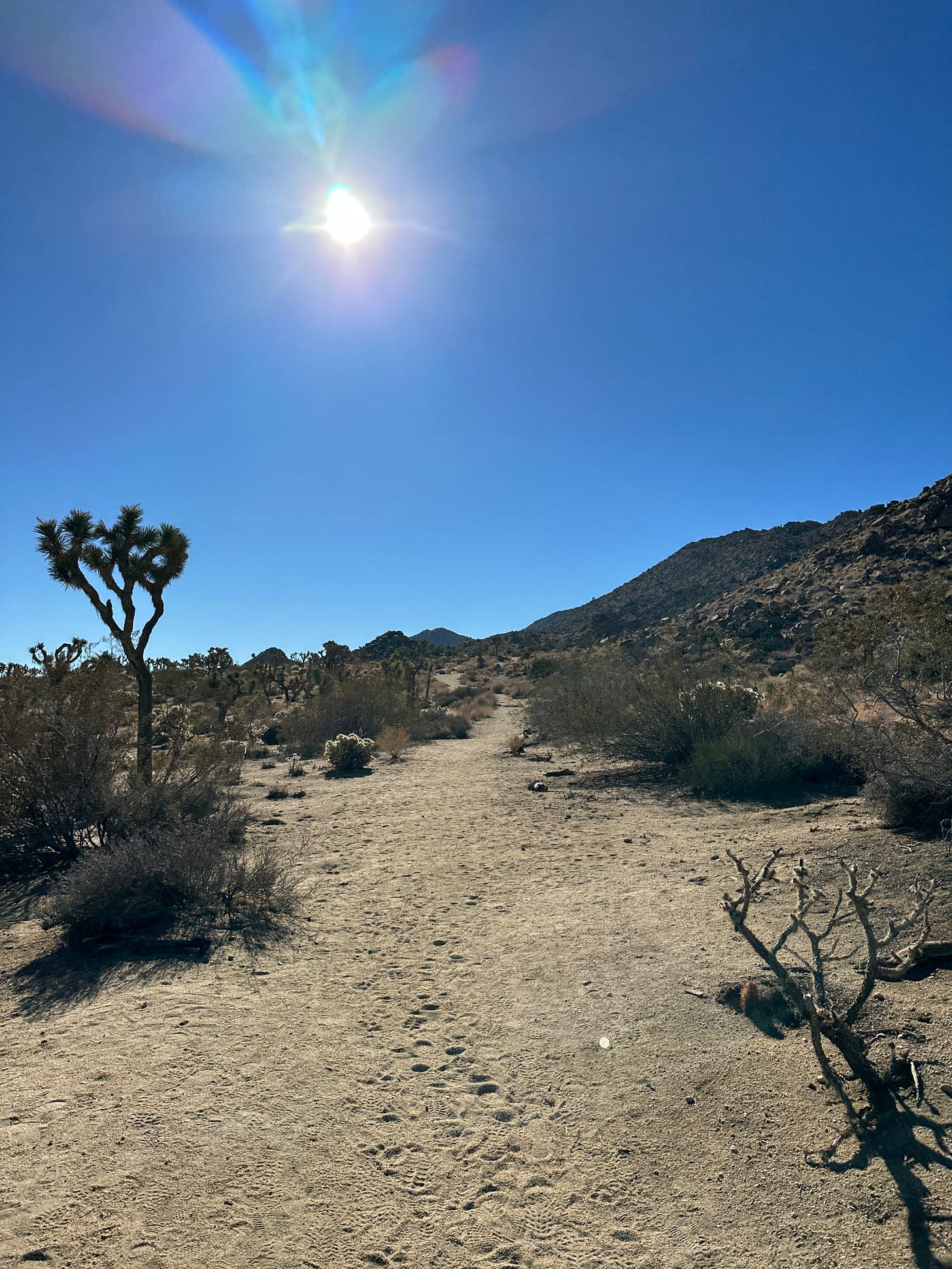California
This is Western Coffee—notes on building the creative body. Last time: Resurrection. The whole series is here. Please share this email; you can sign up free below.
Let me describe a bit to you about the process of making this newsletter: Twice a week, I sit down with a couple of hours of uninterrupted time ahead and begin to write about the topic I set myself at the end of the last edition. I don’t usually know much about what I’m going to write. There’s a word, and the word must become several hundred words before I go to bed, and—after 10 years of disinhibiting morning pages—it’s usually eager to do so without much drama. (Remember, of Didion: “She always writes to find out what she thinks and what she feels.”)
When my draft is whole, I paste it into Substack and start the final rounds of editing—which include sending it to myself as an email, email having its own phenomenology. By constitution and history I’m an editor; even at this stage might come many, many rounds of editing. Then, when it’s done, I pick the topic for next time—an object big or small on a shelf in my mind, something I’ve brought much notice to in the past, or very little. The point in this moment is not the essay that the word will become. Just the word, the gentle challenge to a near-future self.
California was a hazardous choice, because—now that I’m writing it out in a loved one’s house in San Diego, I realize—California is my fulcrum of identity. Neither birthplace nor, thus far at least, destination, it’s a waypoint of spiritual and sexual and athletic and creative awakenings, the place that produced most of my deep friendships and continues to replenish my vision. It’s also the most mythological set of landscapes I’ve encountered. Not the most beautiful; that’s Utah. But mythological, because in California the territory of gods is so tangled up with our own that no process still holds the power to separate them. From its northern to its southern boundary this place is heaven, earth, and hell.
The border-blurring, the boundlessness of human occupation, comes in for criticism: Californians either wield or implicitly allow an attitude of infringement that warps ecologies and places the Californians themselves at dire risk. And yet, as one who is chronologically more than 25 percent Californian, I must defend my people and their choices. They understand, whether to benign or to malignant effect, the negotiability of the edge.
Thus it is that California already offers some of the most strident warnings about what awaits our epoch of humanity and the seat of inventive spirit that we will require to face it. Great innovators are often assholes. Technology wrought by unwise hands is socially corrosive. We might fuck it all up, losing even the modest, spectral, and uneven gains we humans have made against a ruthless history. Cheap optimism is an old story about California with no contemporary justification. And yet when I’m here, I think about all the awakenings it’s been home to: mine, the psychedelic and tech pioneers’, the queers’, and in all likelihood—at least indirectly—yours. In the years to come, I think this place will retain a clear hold on our attention—and not just for all its displays of godly wrath. From the wrathful ashes can arise impossible genesis. Even the arrows of the gods contain divinity, and a trace of that goes a long way.
Coming Friday: Rhythm.
Kindly send me your thoughts, questions, and provocations: dmichaelowen@gmail.com. And say hi on Instagram, or let’s Peloton together: @leggy_blond.



